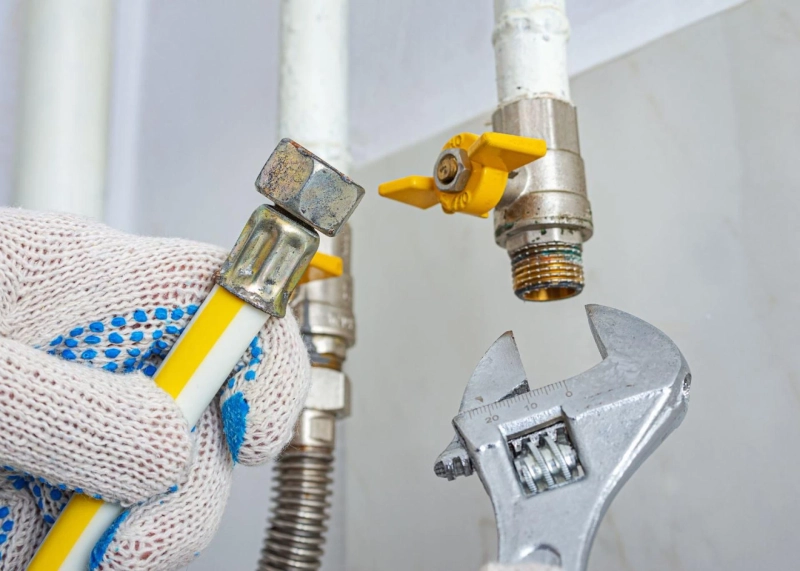Natural gas is a convenient and efficient fuel source for many homes, but it can be dangerous if not handled properly. Gas leaks can lead to explosions and carbon monoxide poisoning, making gas line safety a crucial concern for homeowners. Here's a comprehensive guide on what you should know:
Recognizing a Gas Leak
Natural gas is odorless, but utility companies add a distinctive rotten-egg smell to aid leak detection. If you suspect a gas leak, be alert for these signs:
The Odor of Rotten Eggs
This is the most common and easily recognizable sign of a gas leak. The pungent smell is a strong indicator that there might be a problem.
Hissing Sounds
Listen for gas escaping near appliances or pipes. The sound of hissing or whistling near a gas line can indicate a leak.
Dead or Dying Plants
Leaking gas can deprive plants of oxygen, causing them to wither and die. Check your indoor and outdoor plants for any signs of distress.
Excessive Indoor Humidity
Gas leaks can cause moisture buildup inside your home. If you notice unusual condensation on windows or surfaces, it might be a sign of a gas leak.
Sudden Increase in Gas Bills
Unexplained increases in your gas bill can be an indicator of a gas leak. Monitor your gas usage and compare it to previous months.
What to Do in Case of a Gas Leak
If you suspect a gas leak, act swiftly and calmly:
Evacuate Immediately
Get everyone out of the house, including pets. Safety is your top priority.
Leave Doors Open
Leave doors open as you exit to allow the gas to dissipate.
Avoid Electrical Appliances
Do not use electrical appliances, light switches, or anything that could create a spark. This includes cellphones, which should not be used until you are safely outside.
Call Your Local Emergency Plumber
From a safe location outside, call your local emergency plumber. Do not use your phone inside the house as even cellphones can create sparks.
Wait for the Professional
Wait for the professional to arrive and assess the situation. Do not re-enter your home until it has been declared safe.
Preventing Gas Leaks
Taking proactive steps can minimize the risk of gas leaks. Here’s how:
Regular Gas Line Inspections
Schedule regular gas line inspections by a qualified plumber. These inspections can catch potential issues before they become serious problems.
Avoid DIY Repairs
Never attempt DIY gas line repairs. Always hire a licensed professional to handle any gas line issues.
Install Carbon Monoxide Detectors
Install carbon monoxide detectors near gas appliances and sleeping areas. Test and maintain them regularly according to the manufacturer's instructions.
Visual Inspections
Periodically inspect gas lines and connections for signs of wear, corrosion, or loose fittings.
Be Cautious When Digging
Be cautious when digging or drilling around your property. Call 811 before any digging project to locate underground utility lines.
Professional Appliance Installation
When replacing gas appliances, use a certified professional for installation and connection. This ensures that everything is connected properly and safely.
Follow Manufacturer's Instructions
Always follow the manufacturer's instructions for operating and maintaining your gas appliances. Proper maintenance can prevent leaks and other issues.
The Importance of Gas Line Safety
Gas line safety is paramount. By recognizing the signs of a leak, taking appropriate actions, and implementing preventative measures, you can keep your home and family safe.
If you suspect a gas leak, don’t hesitate to call a local plumber immediately. Their expertise can ensure a swift and safe resolution, giving you peace of mind and protecting your household from potential dangers.



